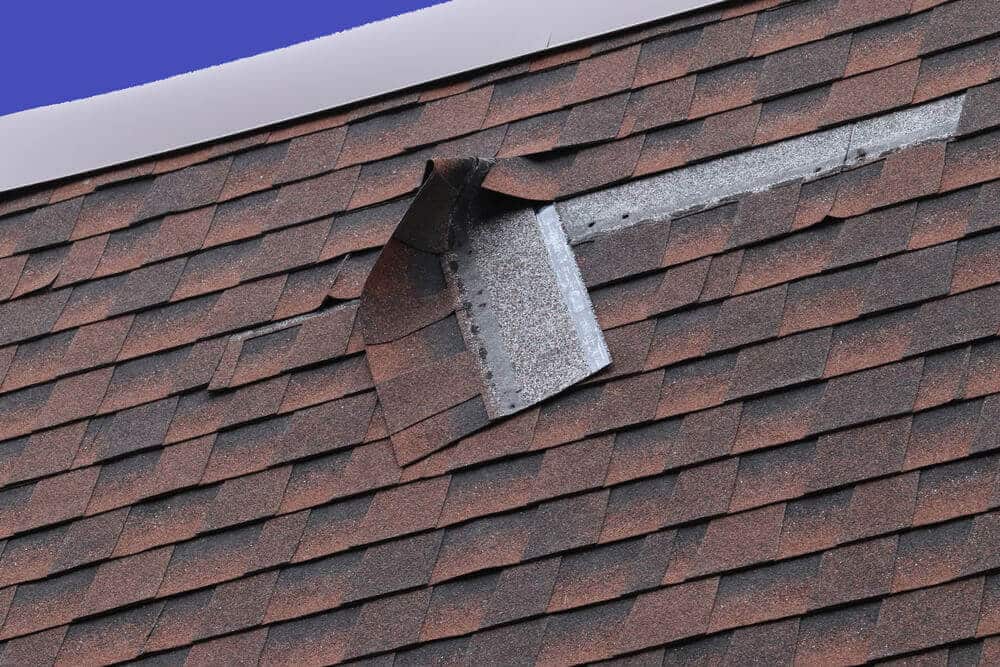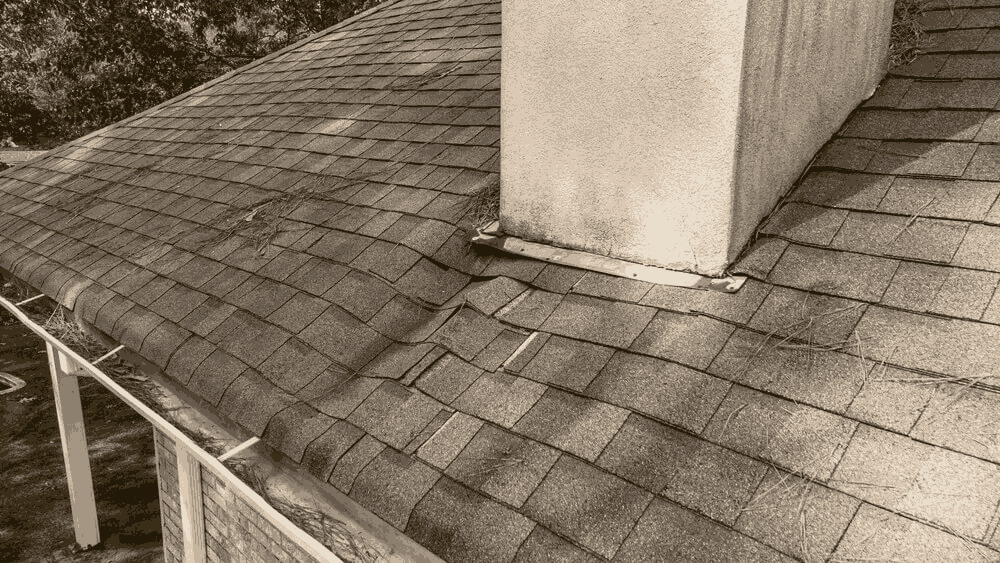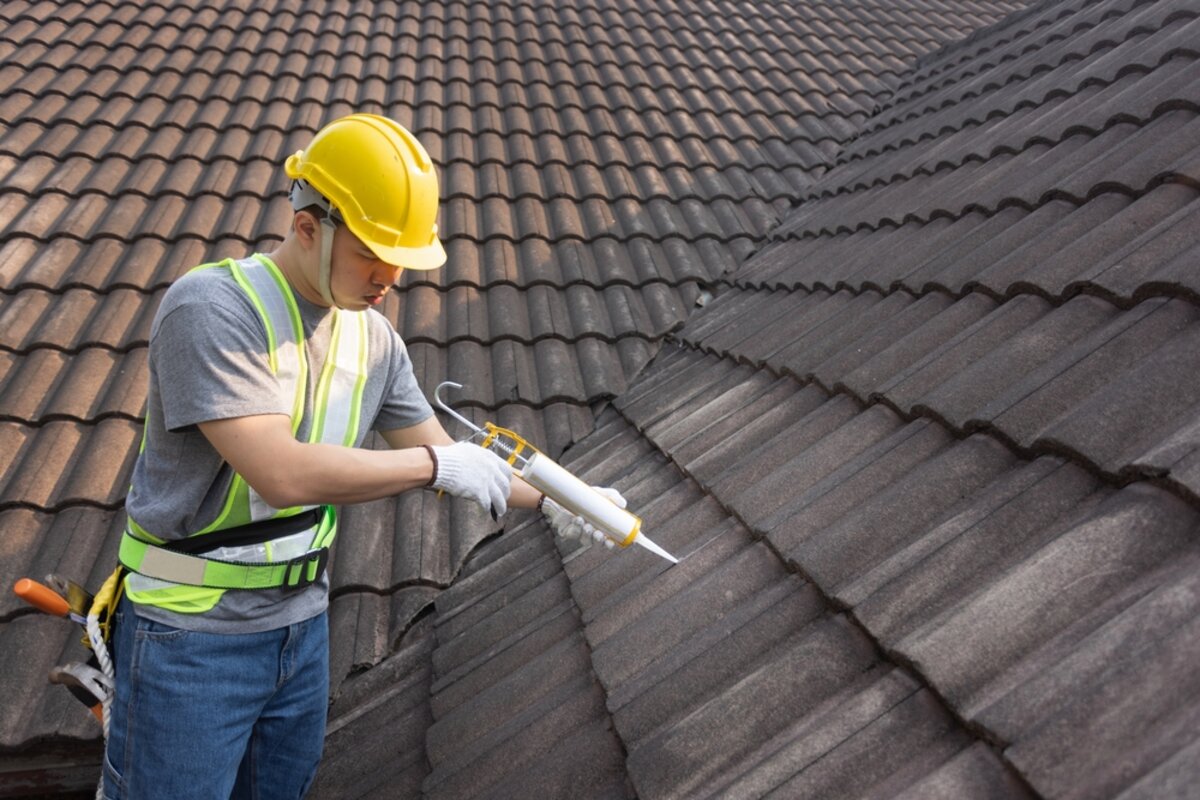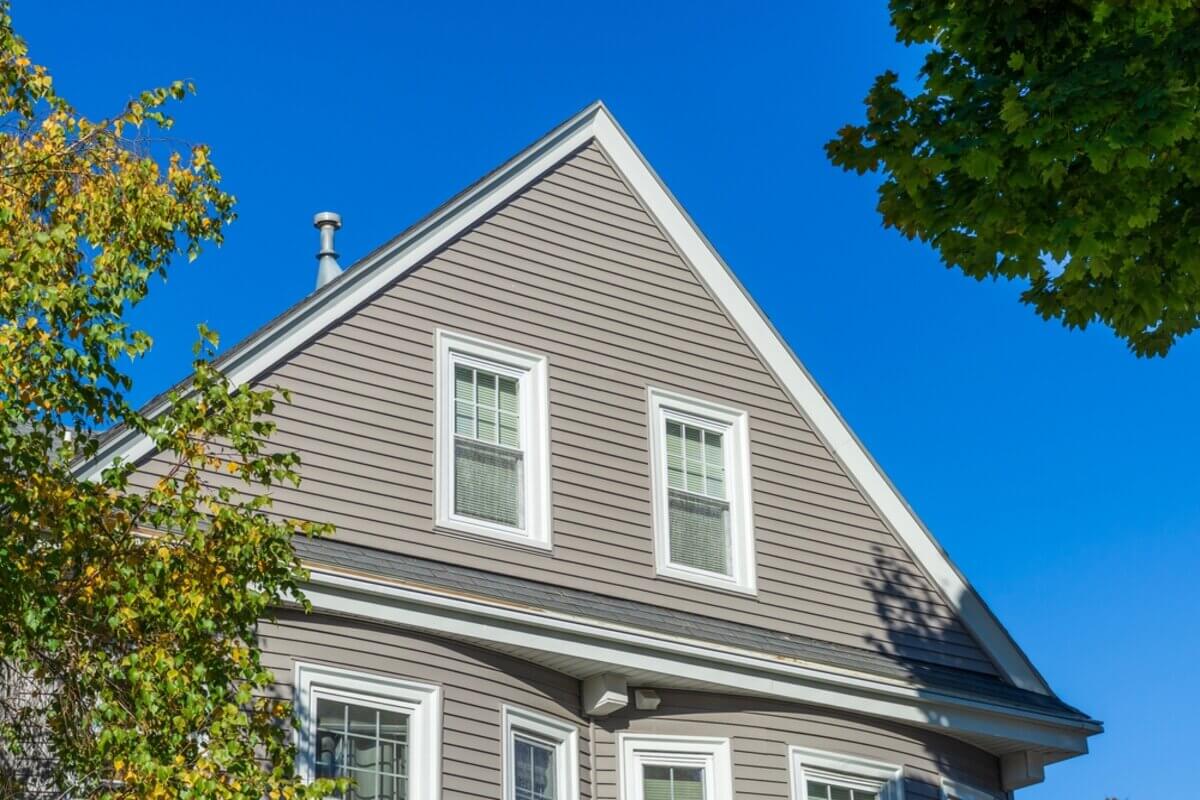The roof is one of the most critical parts of your home. It protects you, your loved ones, and your belongings from inclement weather. Unfortunately, it is often a part of the house that people overlook and ignore.
Damage to your roof can severely damage your home and be incredibly expensive. As a result, it is essential to watch for any types of roof damage and repair it as quickly as possible.
The Most Common Types of Roof Damage
There are many different types of roof damage. These are the most common.
Loose and Damaged Shingles
Loose and damaged shingles are common types of roof damage. Strong winds, hail, age, or poor installation can cause these.
Loose asphalt shingles can lead to storm damage, as water and moisture can quickly get underneath the loose shingle. Damaged shingles can also result in energy loss as they are less effective at regulating your home’s temperature.
It may be tempting to ignore a few missing shingles here and there, but even these types of shingle damage can signify a more significant problem.
Moisture Damage
Water is the biggest enemy of your roof, and water and moisture damage can have serious consequences. Moisture damage can include water leaks and condensation, which can cause mold and mildew growth. You may also see shingle blistering, which is caused by trapped moisture.
Poorly sealed roof joints, exposed nails, or missing shingles can cause moisture damage. This is also one of the types of storm roof damage, as heavy rains can batter roofing materials and cause water to build up.
Punctures and Cracks
Punctures and cracks in your roof can lead to severe water damage, especially during heavy rain. Falling debris, hail, or animal activity can cause types of roof damage through holes and cracks in your roof.
It is essential to look for punctures in your roof, as small holes can quickly turn into large gaping cracks. Large cavities can also cause problems with heating and cooling.
Worn Roofing Materials
Even if you use the highest quality building materials for your roof, time takes its toll, and eventually, the roofing materials will begin to show signs of wear and tear. Some types of shingle damage or other damage to roofing materials are more serious than others, so it is crucial to know the signs.
This type of damage can include things like missing granules, splitting, cracking, or curling shingles. You should replace worn roofing materials as soon as you notice them. If you see that your roof is showing signs of being worn out, it may be time to replace the roof or do significant repairs.
It may be a good idea to contact a roof specialist to get an appraisal if you’re seeing any signs of this type of roof damage.
Standing Water
Water may pool on the surface of your roof if it does not have a good slope. Standing water can cause many problems like mold, mildew growth, and rotting of the roofing materials. It can also cause rust on metal roofs.
Standing water can also be a breeding ground for mosquitoes and other pests. It is vital to ensure your roof has the proper slope and that water drains off it quickly.
Structural Damage
Structural damage is the worst type of roof damage. It is usually a by-product of other damage like water damage, punctures, and cracks. Structural damage can cause roof collapses, so you should take it seriously.
If you notice any evidence of structural damage, it is crucial to contact a professional right away. Structural damage is the most dangerous type of roof damage, and looks can be deceiving. You should prioritize fixing this type of damage right away.
What Are the Common Causes of Roof Damage?
There are as many causes as there are types of roof damage, and most homes will experience many of them over the year. These forms of roof damage can also impact commercial roofing.
Wind
As one of the types of storm roof damage, wind can cause a lot of serious damage to your roof. A light breeze will not hurt your home, but as winds increase in speed, they can rip off shingles, cause punctures, and even cause roof collapses.
UV and Heat Damage
UV rays from the sun can cause roof damage, as they can break down roofing materials and make them brittle over time. Heat damage is also a significant concern and can cause shingles to warp, crack, or curl. If your home faces high heat, you must use suitable building materials to avoid types of shingle damage.
Water Damage
Water dripping from the roof, poor drainage systems, or improperly sealed joints can all cause water damage. Excess moisture in the attic can also cause roof damage.
Hail
Hail is another common type of storm roof damage. Hail can cause severe damage by denting, puncturing, and ripping the roof. It is important to use sturdy roofing materials to withstand hail when building your home in a hail-prone area.
Tree Branches
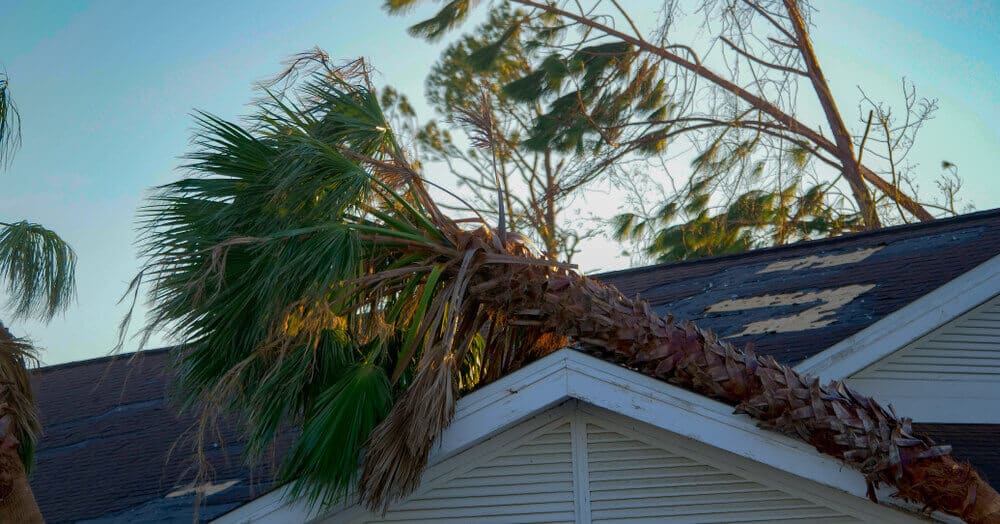
In areas where trees are near homes, tree branches can cause roof damage. Branches that break off can puncture and tear shingles and cause roof collapses if they are big enough.
Animals
Animals can also cause roof damage. Animal nests, burrows, and even chewing can cause damage to the roof.
What Are the Consequences of Roof Damage?
The consequences of roof damage can range from minor to extremely serious. If you don’t address the problem quickly, the roof damage can worsen and cause a roof collapse.
Another consequence of roof damage is that it will make your home less energy efficient. Damaged roofing materials can let heat escape and cause energy bills to rise.
Finally, roof damage can also result in premature aging of the roof. If you don’t address the problem quickly, the damage will worsen, and you may eventually have to replace your roof.
Solutions for Common Types of Roof Damage
Knowing the common types of roof damage, what causes them, and their consequences is essential for any homeowner. If you notice any evidence of roof damage, you should contact a professional right away. Proper maintenance and upkeep of your roof is the best way to avoid severe issues in the future.
If you think your home has roof damage, our experts at Perfect Exteriors can help you. Contact us today for an estimate or an inspection of your roof.

